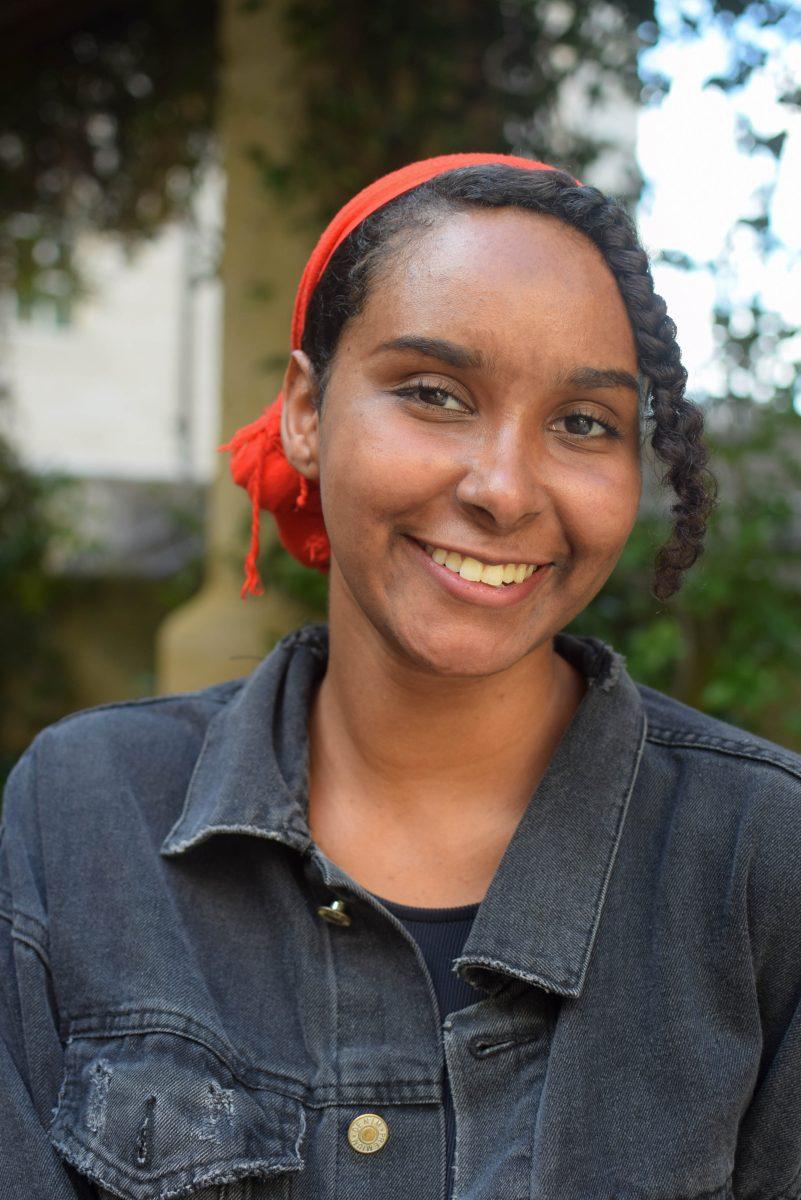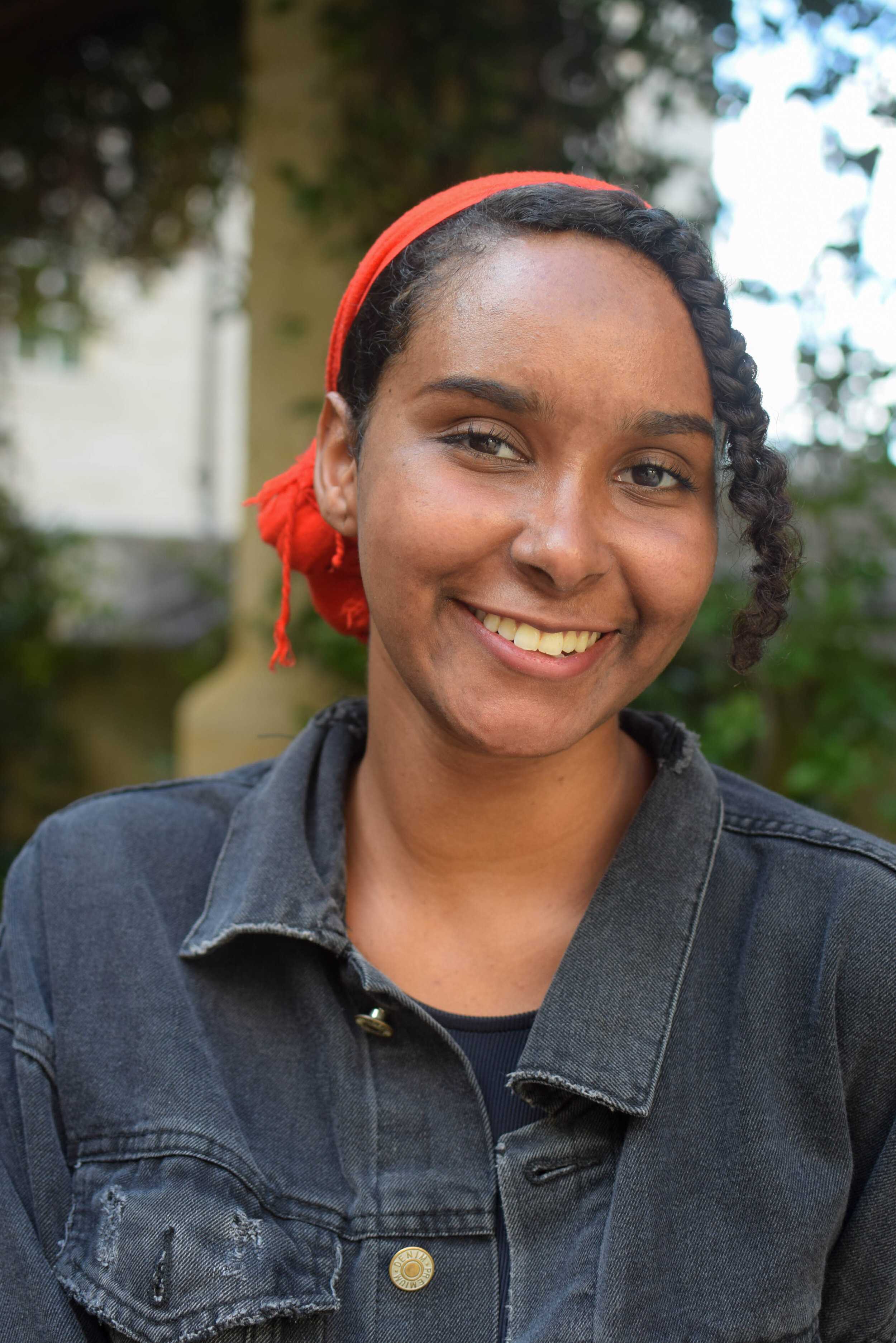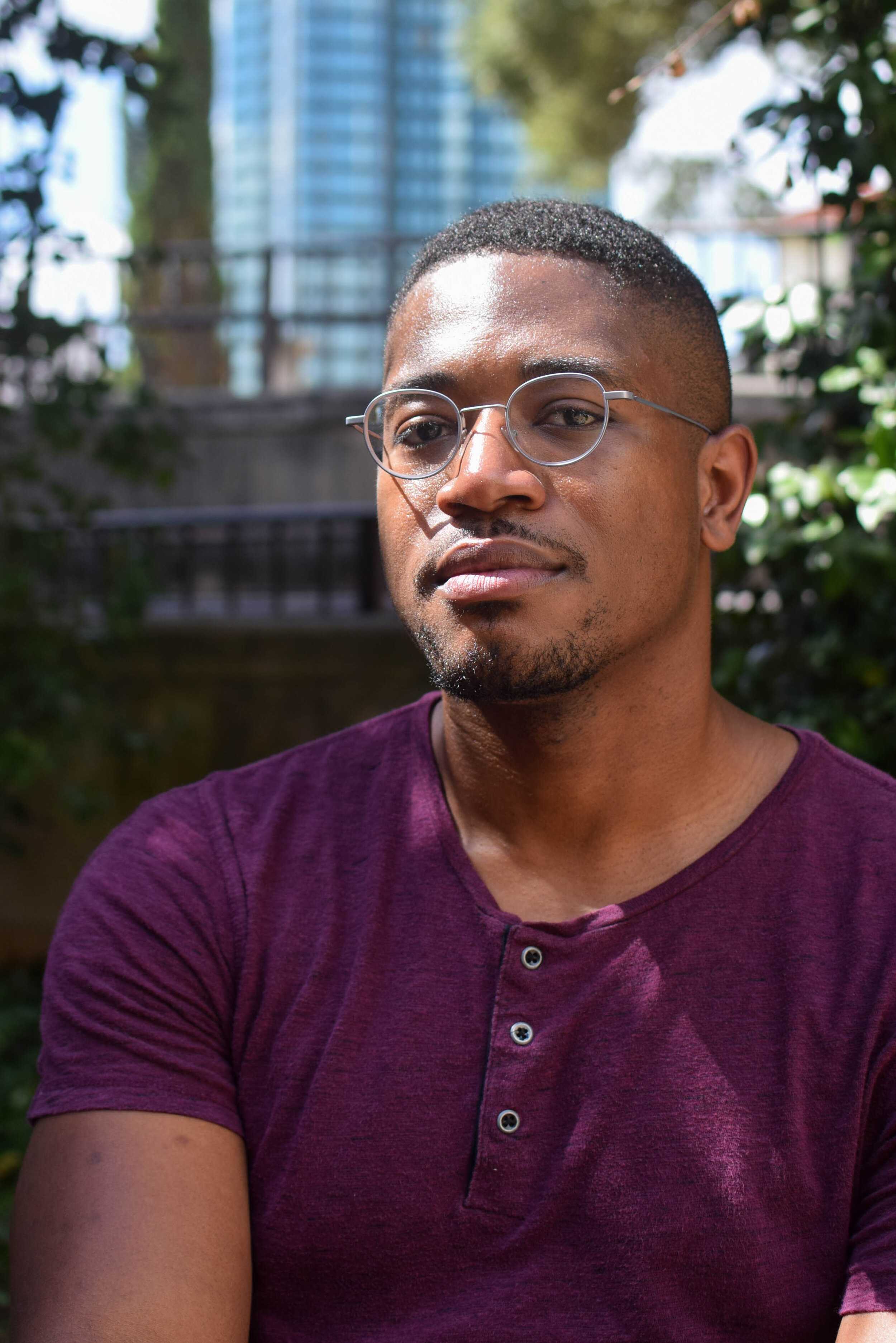The Black Muslims Alliance is dedicated to creating an inclusive space for Black Muslims, allies and other marginalized identities at the University of Texas at Austin. Texas BMA challenges prevalent assumptions about Islam and Muslims while demanding a seat at the table for an often-overlooked demographic within the Muslim community: Black Muslims.
Story by Imani Sebri
Photos by Maya Dandashi
ORANGE sat down with Shams Alkamil, a human development senior and Texas BMA president, and Ameen Williams, an english senior and Texas BMA finance director.
Responses have been edited for clarity.
Shams Alkamil, a human development senior and the co-president of the Black Muslims Alliance
ORANGE: When was BMA first established? Why did you feel the need to create a space like this at UT?
Alkamil: The idea of BMA is something my friends and I have been thinking about for years. But for me, I found the courage to actually start it when I saw how the Muslim community was (quiet) about the violence and oppression people in Black countries like Sudan and Somalia faced. I’m Sudani so that felt personal. So, that was my spine. I wanted to start a group to create awareness and solidarity for all of us because I know I wasn’t alone in that (feeling).
Williams: I wanted to make something that would leave a lasting impact. I noticed that when it comes to Islam, it is focused on the Middle East. I’ve noticed Black Muslims don’t feel wanted within the community, and I want them to know that being Black and Muslim is a part of America, beginning to end. It’s American history.
ORANGE: Can you give us more insight into some of the issues you have faced as a Black Muslim?
Alkamil: Black people are often seen as the “other.” I found myself consciously having to prove that I was Muslim enough, to prove that I spoke (and understood) Arabic, even though it’s my native tongue, or proving that I know enough surahs or hadiths. Just the idea that we, Black Muslims, are seen as “less than.”
ORANGE: What were your experiences starting an organization that was the first of its kind at UT?
Alkamil: As the president, a lot of the backlash (from within the community) was directed at me. I was painted as an angry, Black woman who wanted to break apart the Ummah. That wasn’t my intention at all. It was difficult, but Jenab Camara, another BMA officer said something along the lines of “I would never let any of our members feel like they’re less than or the root of an issue they didn’t create.” That helped me feel more confident about the purpose of BMA.
ORANGE: Now, your organization chose the name ‘Black Muslims Alliance,’ and I know that is intentional. Can you give more insight into why you chose that?
Alkamil: Well first, we came to that decision because we don’t want to disregard our allies. We have amazing allies who are very cognizant of when to speak up and when to take a step back. Secondly, we wanted to create this group from a place of inclusivity. We are treated as outsiders and didn’t want to perpetuate that within [BMA]…We support everyone here. Queer, Shia, people from marginalized groups…that’s what “alliance” means.
Ameen Williams, an english senior and finance director of the Black Muslims Alliance.
Williams: Some Muslims feel like they don’t have a place to go because they don’t fit into any cultures that are often represented when people talk about Islam. To me…(using) “alliance” is a way to show we are a place where Muslims, Black or not, can come to feel like they fit into a community.
ORANGE: What do you want your legacy at UT to be?
Alkamil: I want to come back (to UT) years later and see the Black Muslims on campus thriving. It’s saddening that a lot of us feel like we don’t belong in our own communities…I would just like to come back and see Black Muslims being proud that they’re Muslim, embracing both identities together.
Williams: I was actually surprised by how many Black Muslims there are on campus (to begin with). As far as legacy, I want to know BMA has left a major impact not only on campus but (on the) community as a whole in Austin.
ORANGE: What advice would you offer to Black Muslims struggling with navigating their identities?
Alkamil: I would say that there is an issue within our community, that is beyond you. We are all susceptible to feeling what is projected onto us, but that is not our issue. With that, I want to emphasize being proud of your identity— it’s one of the only things in our lives that is always ours forever.
Williams: The most important thing is that we shouldn’t be afraid to mess up. Take your time, try to learn as much as you can and don’t be ashamed in who you are.
BMA’s next event is Wednesday, October 23rd from 6-8 pm, and it is open mic night focused on the Black Muslim experience.
Words to Know:
Hadith: Collections of actions and statements by the Prophet Muhammad, used as guidelines for many Muslims.
Surah: A term used for a chapter of the Quran, or central religious text in Islam.
Ummah: Arabic word referring to the Muslim community.













































